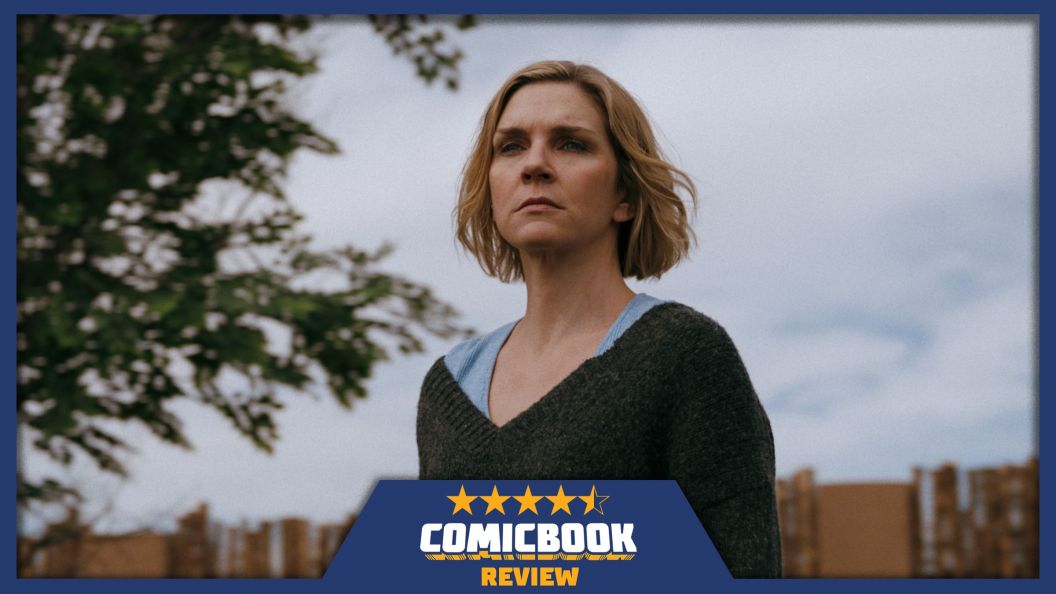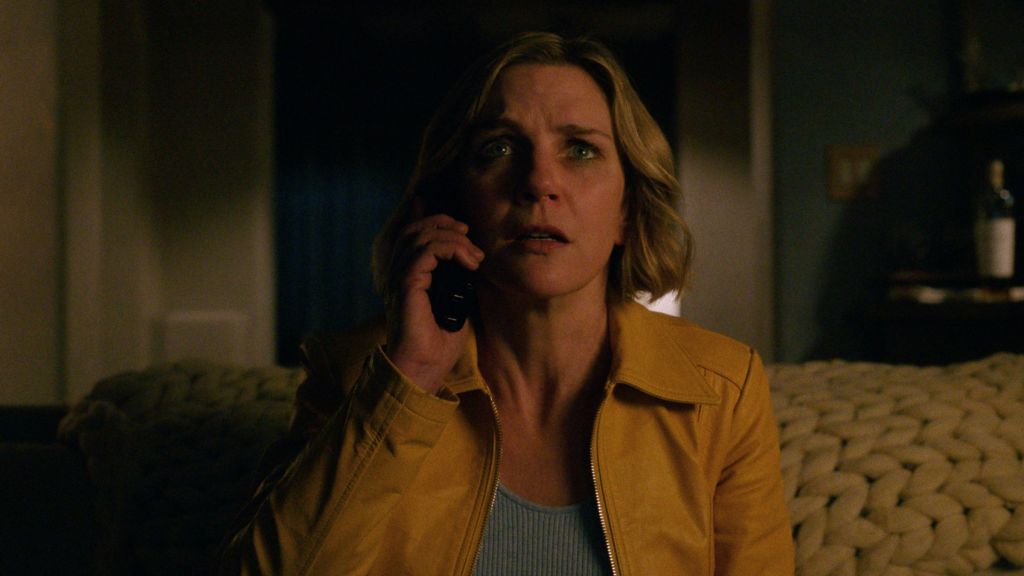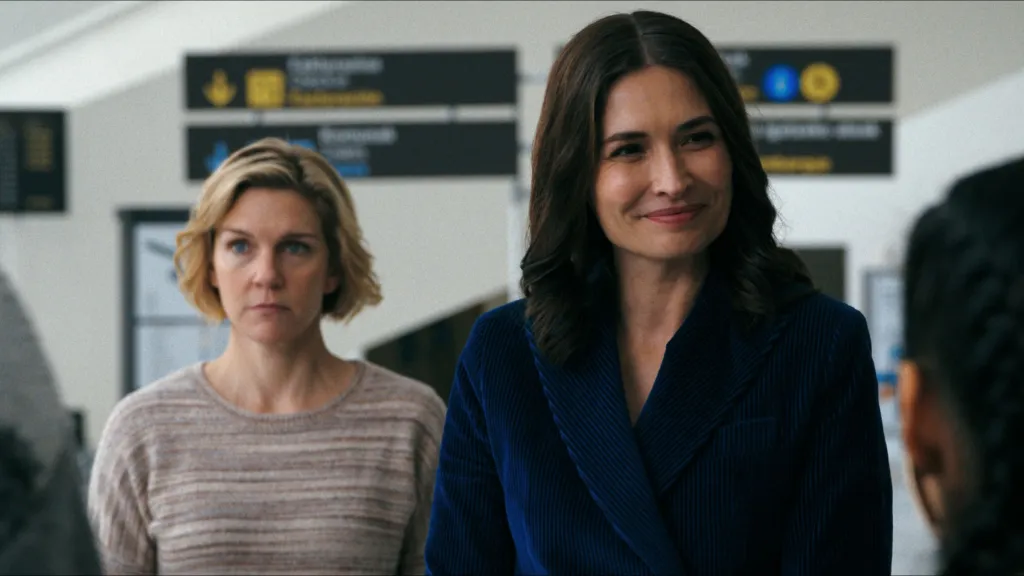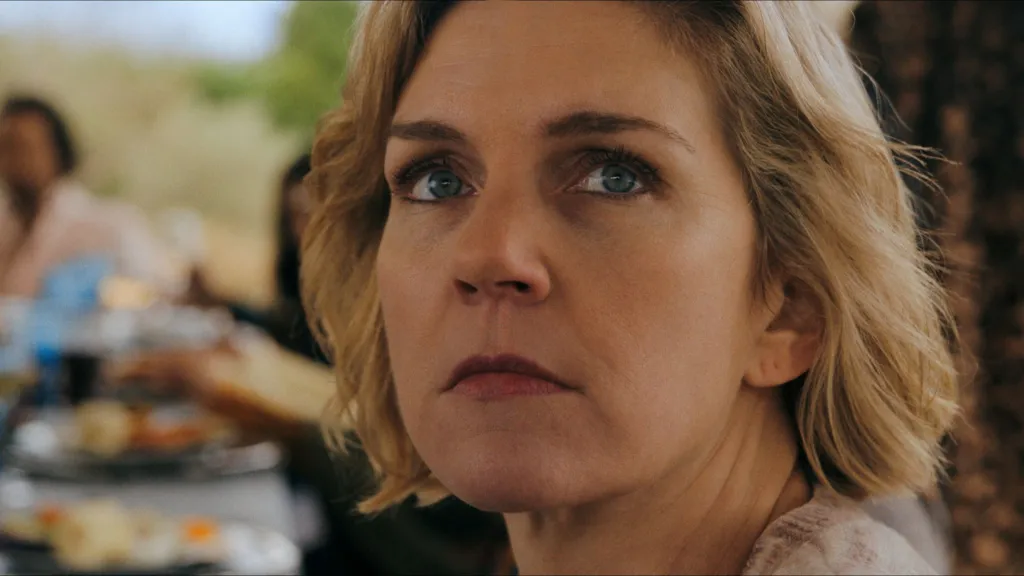Articles
Pluribus Review: Breaking Bad’s Creator’s New Series Is an Essential Slow-Burning Sci-Fi Drama

Over a decade after it aired its final episode, Breaking Bad is still regarded as one of the best TV shows ever, with good reason. Insisting on a deliberate pace when TV tends to speed up the plot to keep audiences engaged, Breaking Bad is the ultimate proof of concept that well-crafted slow-burn dramas can have massive payoffs, especially when the story keeps the focus on character. Breaking Bad‘s creator, Vince Gilligan, perfected this style with Better Call Saul, a prequel story that arguably surpasses the original in every sense. Now, Apple TV offers Gilligan the opportunity to make his deepest dive into human morality through Pluribus, a unique sci-fi series that makes the best of the creator’s greatest strengths.
As Pluribus‘s trailers cryptically tease, the series revolves around Carol (Rhea Seehorn), a depressed fantasy author who finds herself in an unusual version of the apocalypse. Instead of chaos and destruction, the enticing event of the series changes humanity, uniting every person on the planet through the same hive mind. This instant connection allows humans to experience the world as one, erasing the differences on every scale. As for Carol, she is immune to the effects of this transformation, making her an unwilling witness to the crumbling of society as we know it.
Each episode of Pluribus peels the layers of the sudden unification of humanity, slowly explaining the new rules of human existence. At the same time, we follow Carol as she struggles to accept the new status quo, desperately fighting to put things back as they were. Still, while Pluribus has a strong sci-fi concept at its core, the series is mostly concerned with using Carol’s situation to break down what makes humans such unique creatures in the cosmos, and how the things that give us personality are simultaneously endangering our own lives.
Rating: 4.5/5
| PROS | CONS |
| Deep moral and philosophical themes | Slow pacing might detract some viewers |
| In-depth exploration of ian ntriguing sci-fi concept | |
| Award-worthy central performance from Rhea Seehorn | |
| In-depth exploration of an intriguing sci-fi concept | |
| Meticulous cinematography, clever camera angles, and Vince Gilligan’s usual technical excellence | |
| High production quality |
Pluribus Raises Deep Questions About Identity and Autonomy

Like Breaking Bad and Better Call Saul before it, Pluribus never wastes audiences’ time with grand speeches and exposition that chew down the hard questions it raises. Instead, Gilligan oversees a narrative that naturally exposes the complex philosophical questions of its unique concept. Carol’s complete rejection of the unification is a relatable reaction, as everything that makes us into recognizable people comes from our individuality. We tend to repeat the adage that every person is unique, and that’s due to the many different ways to shape our identity and communicate with the world around us and with each other. So many that we can find differences between billions of humans all over the globe. To see every nuance and idiosyncrasy suddenly erased is a violence Carol simply can’t process.
Meanwhile, the sudden bliss experienced by humanity also reveals how petty we can be as a species. Every human is challenged every day to accept that other people might not share their particular worldview in matters big and small. That often leads to conflict, from wars to neighborhood disputes. But what happens when we suddenly understand each one on the deepest level, to the point where we all function as one? Then, there is no reason to clash, and instead, we can work together for the benefit of the planet.

It’s impossible to dissociate Pluribus‘s emotional journey from its implicit criticism of how humans currently organize economic systems and the exploration of natural resources. When people all become one, the entire workforce can focus its energy on the best distribution of resources, which quickly solves some obvious social issues that we have never been able to tackle in centuries. That’s when things get complicated, because as much as we can understand Carol’s despair at seeing individuality destroyed, the many benefits of the transformation also force the audience to question their own place in the world. While this unresolvable friction is evident from the first episode of Pluribus, things get more complicated as the season goes by, which only makes the series more mesmerizing.
Vince Gilligan’s New Series Is Technically Flawless

Despite the universal acclaim of Breaking Bad and Better Call Saul, these shows received some criticism for their slow pace. That remains true for Pluribus, despite the show’s sci-fi hook. For those of us who enjoy Gilligan’s attention to detail, though, Pluribus is a technical marvel that pushes his ability to craft meticulous scenes as never before. The very idea of humanity working together as a single being leads to some incredibly choreographed sequences where dozens of extras work in unison to create impressive images. Each episode of Pluribus has at least one set piece entirely dedicated to showcasing humanity’s newfound coordination, and every single one of them is breathtaking.
Since Carol’s residence is located in Albuquerque, Gilligan can also use his vast experience in shooting in the desert to create mesmerizing frames. Plus, the showrunner and his marvelous team of directors keep challenging themselves to film scenes through reflections and from unusual angles, using some of the best tricks from Breaking Bad and Better Call Saul to turn Pluribus into a stand-out work of art. Finally, the very concept of Pluribus, due to Carol’s isolation and the lack of necessity of verbal communication among united humans, creates the perfect conditions for Gilligan to explore silence as a storytelling tool, a principle that was already part of his previous creations.

It’s also great that Seehorn got the acting vehicle she so desperately deserved after stealing every scene in Better Call Saul. Seehorn is one of the best actresses in Hollywood, and it’s outrageous that she still hasn’t won an Emmy. If there’s justice in the world, Pluribus will change that. More than ever, Seehorn can use her incredible range to show the turmoil of her character through her enviable control of her microexpressions, often revealing so much of Carol’s psyche without uttering a single word. It’s always enthralling to watch Seehorn act, and Pluribus‘s structure ensures she can dominate the show.
It’s still too soon to know how the first season of Pluribus will handle its finale — only seven episodes of a nine-episode season were available for reviewers. Yet, since Apple TV has greenlit two seasons of Pluribus before its premiere, Gilligan has plenty of wiggle room to ensure proper pacing. If his previous works tell us anything, it is that Gilligan is obsessed with planning, outlining whole stories in advance instead of figuring things out as he goes. For the time being, we can only feel hopeful about Pluribus‘s future.
Pluribus premieres November 7 on Apple TV, with two episodes. After that, new episodes of Pluribus will become available every Friday.
The post Pluribus Review: Breaking Bad’s Creator’s New Series Is an Essential Slow-Burning Sci-Fi Drama appeared first on ComicBook.com.



